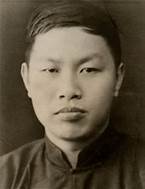The following excerpt is from the author’s academic paper “The Impact of Watchman Nee’s Pneumatology.” This article will conclude our series.
Hui is correct when he says that Nee “argues that we must distinguish between being ‘filled with the Holy Spirit’…and being ‘full of the Holy Spirit.’”[1] While Watchman Nee would be considered charismatic in his pneumatology, one cannot stretch this aspect too far. Watchman Nee writes that
the principle on which we receive the enduement of the Holy Spirit is the very same as that on which we receive forgiveness of sins…Is it possible that the Son of God shed His Blood [sic] and that your sins, dear child of God, have not been forgiven? Never! Then is it possible that the Son of God has been glorified and you have not received the Spirit? Never![2]
In other words, Nee believes in a special fullness of the Holy Spirit, but it is difficult to ascertain whether he believes this to be a separate event as do many Pentecostals. While one may be quick to ask, how is it that one could be less than full of the Holy Spirit; it should be noted that Paul the apostle himself stated that one should not “quench the Spirit” (1 Thessalonians 5:19). If it is possible to quench the Holy Spirit, then is it possible to lose focus on the Holy Spirit? It would indeed appear so. Paul writes to believers in Ephesus that they should not “get drunk with wine, for that is debauchery, but be filled with the Spirit” (Ephesians 5:18). That is, the believer’s controlling factor is the Holy Spirit.
While Nee’s pneumatology finds itself well within the network of the Wesleyan tradition and thereby outside of the Calvinist tradition, Nee’s pneumatology is not terribly different than most evangelicals. The focus that Nee places on the Holy Spirit is to be admired. While Nee’s focus on the Holy Spirit would get him through incredible difficulties, Nee’s emphasis on the Holy Spirit would have an impact on the house church movement.
Impact Upon The House Church Movement
Thus far, this paper has examined the life and pneumatology of Watchman Nee. But, what emphasis would this hold on the so-called house church movement? The House Church Movement arose from, as Lee notes, “Tensions and conflicts with the Communist government.”[3] As it was noted earlier in Nee’s biography, Christians in the House Church Movement were met with severe punishment, imprisonment, and even death if caught. Timothy Tennent notes that individuals like Watchman Nee “wrote many Christian books, pamphlets, and hymns that helped to foster and nurture networks of unregistered house churches.”[4] Nee’s emphasis on the spiritual direction and comfort of the Holy Spirit gave the adherents of the church movement hope to endure even the most difficult of circumstances. Nee eloquently states that the “Christian experience begins with sitting and leads to walking, but it does not end with these. Every Christian must learn also to stand. Each one of us must be prepared for the conflict.”[5] The Chinese House Church Movement continues to grow despite mounted efforts to destroy them. The great irony is that the church is at its best when it faces situations at their worst. What impact can modern Western Christian extract from Nee’s pneumatology?
The Modern Impact of Watchman Nee’s Pneumatology
Watchman Nee’s pneumatology holds three important areas of impact for the modern Western Christian. First, Nee’s pneumatology afforded him the ability to endure the most horrific of circumstances. Nee did not possess a self-serving attitude. Western theologies such as the infamous health and wellness gospel promote a sense of entitlement to the degree that no pain is anticipated by its adherents. Yet, Nee demonstrates that authentic Christianity comes with a great price. The Christian may be expected to “deny himself and take up his cross daily” (Luke 9:23) in order to follow Christ.
Next, Nee’s pneumatology focused on the direction and strength given by the Holy Spirit. Thus, Nee depended on God. Western Christianity has become overly individualized. In the land of the so-called “selfie,” many people in the Western world have become infatuated with selfish behaviors and fall down before the altar of their own narcissism. In stark contrast, Nee provides the antidote to such self-serving attitudes—to fully trust in the Holy Spirit. The modern hyper-cessasionalist, to their own detriment, often journeys too far in the opposing direction in order to counteract charismatic ideologies. Spiritual dependency upon the Holy Spirit is a necessity if one is to be defended in spiritual warfare. The work of ministry is also dependent upon the working of the Spirit as attested by all orthodox Christians, Western and Majority World Christians alike.
Finally, the modern Western Christian can learn from the primacy that Nee gave the kingdom of God. This primacy did not make life easy. In fact, the Little Flock ran into difficulties with the Communist Party of China when they decided to focus completely on the kingdom of God rather than secular political agendas. While politics is an extremely important field, Nee’s pneumatology serves to illustrate that the Christian needs to first focus on the “kingdom of God and his righteousness” (Matthew 6:33). It is easy for one to lose their bearings when the kingdom is not stressed. Nee’s pneumatology demands that God’s kingdom must come prior to the kingdoms of the world.
Conclusion
This paper has shown that the pneumatology of Watchman Nee had a significant impact on Nee’s theology as well as the House Church Movement in China. The paper has also served to show the impact that Nee’s pneumatology can offer for the modern Western Christian. While many theologians may differ with Nee on his soteriology, his ecclesiology, his charismatic beliefs, or even his eschatology; most all Christians can appreciate the dependence upon the Holy Spirit that Nee fervently emphasized through his life. Modern Christians face uncertain times. Majority World Christians face increasing pressures from persecution, whereas Western Christians find themselves a minority as North America and Europe become increasingly secularized. Individuals like Bonhoeffer in Germany and Nee in China serve as fantastic examples in how the Christian can endure in almost any circumstance. The modern Christian would do well to learn from the great persons of faith given to us by God throughout history. Such persons serve as illustrations of what God can do in a person wholly surrendered unto the Spirit of God.
Copyright, February 2, 2016. Brian Chilton.
Bibliography
Adeney, D. “Nee, Watchman,” Who’s Who in Christian History. Edited by J.D. Douglas and Philip W. Comfort. Wheaton: Tyndale House, 1992.
Erling, Bernhard. “Story of Watchman Nee.” Lutheran Quarterly 28, 2 (May 1976): 140-155. Accessed November 20, 2015. ATLA Religion Database with ATLASerials, EBSCOhost.
Geisler, Norman L. Chosen But Free: A Balanced View of God’s Sovereignty and Free Will. Third Edition. Minneapolis: Bethany House, 2010.
_______________. Systematic Theology: In One Volume. Minneapolis: Bethany House, 2011.
Hui, Archie. “The Pneumatology of Watchman Nee: a New Testament Perspective.” The Evangelical Quarterly 76, 1 (January 2004): 3-29. Accessed November 20, 2015. ATLA Religion Database with ATLASerials, EBSCOhost.
Lee, Joseph Tse-Hei. “Watchman Nee and the Little Flock movement in Maoist China.” Church History 74, 1 (March 2005): 68-96. Accessed November 20, 2015. ATLA Religion Database with ATLASerials, EBSCOhost.
Nee, Watchman. Sit, Walk, Stand. Carol Stream: Tyndale House, 1977.
_____________. The Normal Christian Life. Fort Washington, PA: Christian Literature Crusade, 1980.
_____________. The Spiritual Man: In Three Volumes. New York: Christian Fellowship Publishers, Inc., 1968.
Tennent, Timothy C. Theology in the Context of World Christianity. Grand Rapids: Zondervan, 2007.
Endnotes
[1] Hui, “The Pneumatology of Watchman Nee,” The Evangelical Quarterly, 5.
[2] Nee, The Normal Christian Life, 85-86.
[3] Lee, “Watchman Nee and the Little Flock Movement in Maoist China,” Church History, 70.
[4] Timothy C. Tennent, Theology in the Context of World Christianity: How the Global Church is Influencing the Way We Think About and Discuss Theology (Grand Rapids: Zondervan, 2007), 235.
[5] Nee, Sit, Walk, Stand, 39-40.





